Humans
Sign up for our newsletter
We summarize the week's scientific breakthroughs every Thursday.
-
 Neuroscience
NeuroscienceHow scientists are hunting for a safer opioid painkiller
Scientists are sorting through chemical structures, twisting and turning known drugs and exploring new ways to ease pain.
-
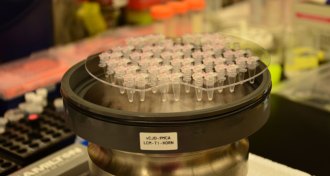 Health & Medicine
Health & MedicineNew blood tests can detect prions
Blood tests may detect prion disease in people even before onset of symptoms.
-
 Health & Medicine
Health & MedicineMotherhood might actually improve memory
Having a baby changes all sorts of things, including a mother’s brain.
-
 Health & Medicine
Health & MedicineThe Flint water crisis and other public health woes from 2016
Drug use continued to threaten the health and safety of the American public in 2016, while a hidden menace in drinking water remained a worry in Michigan.
-
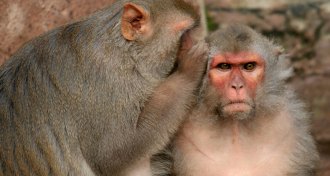 Anthropology
AnthropologyMonkeys have vocal tools, but not brains, to talk like humans
Macaques have vocal tracts, but not brains, built for talking much as people do, scientists say.
By Bruce Bower -
 Anthropology
AnthropologyNew footprint finds suggest range of body sizes for Lucy’s species
Tracks discovered in Tanzania appear to have belonged to the tallest known Australopithecus afarensis individual, but stature estimates can be tricky.
By Bruce Bower -
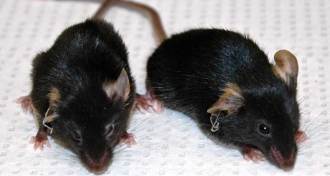 Genetics
GeneticsProteins that reprogram cells can turn back mice’s aging clock
Proteins that reprogram adult cells to an embryonic-like state can rejuvenate prematurely aging mice.
-
 Health & Medicine
Health & MedicineBirth defects occur in 1 in 10 pregnancies with first trimester Zika infection
About 6 percent of U.S. women infected with Zika virus have infants or fetuses with birth defects, according to preliminary CDC results. For women infected in the first trimester, the number is even higher: nearly 11 percent.
By Meghan Rosen -
 Health & Medicine
Health & MedicineYear in review: Zika virus devastates Brazil and spreads fear across Americas
The increase in microcephaly in Brazil has spread fear of Zika infection across the Americas.
By Meghan Rosen -
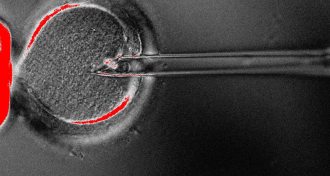 Genetics
GeneticsYear in review: ‘Three-parent baby’ technique raises hope and concern
Safety and ethical concerns surround controversial mitochondrial replacement therapy.
-
 Genetics
GeneticsYear in review: How humans populated the globe
DNA studies put new twists on timing of ancient human migrations – but genetics alone are not enough to tell the full story.
By Bruce Bower -
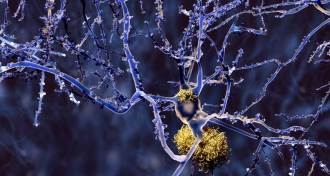 Neuroscience
NeuroscienceYear in review: Alzheimer’s drug may clarify disease’s origins
Researchers will now test whether a treatment that swept away amyloid brain plaques also improves cognitive performance.